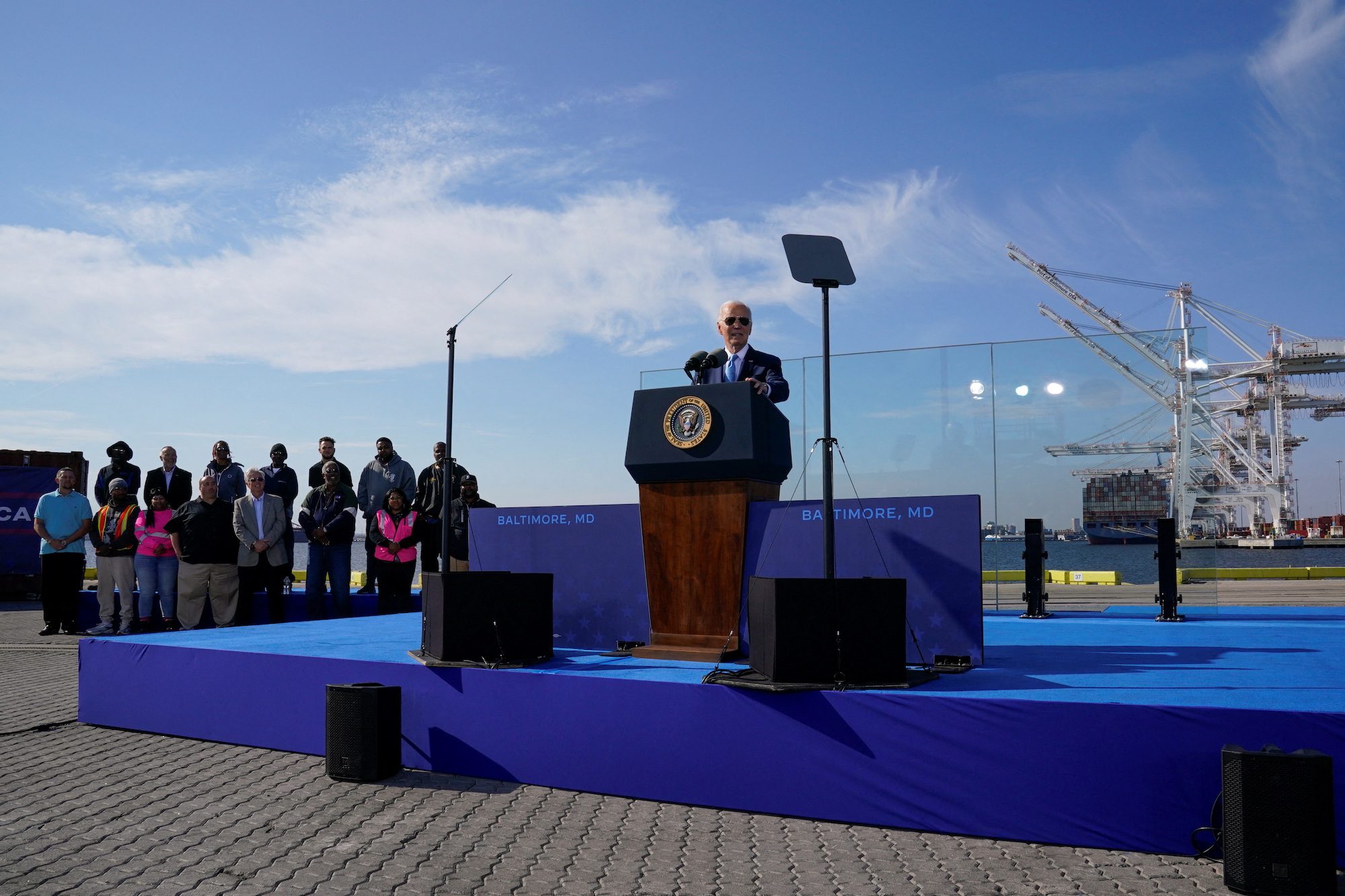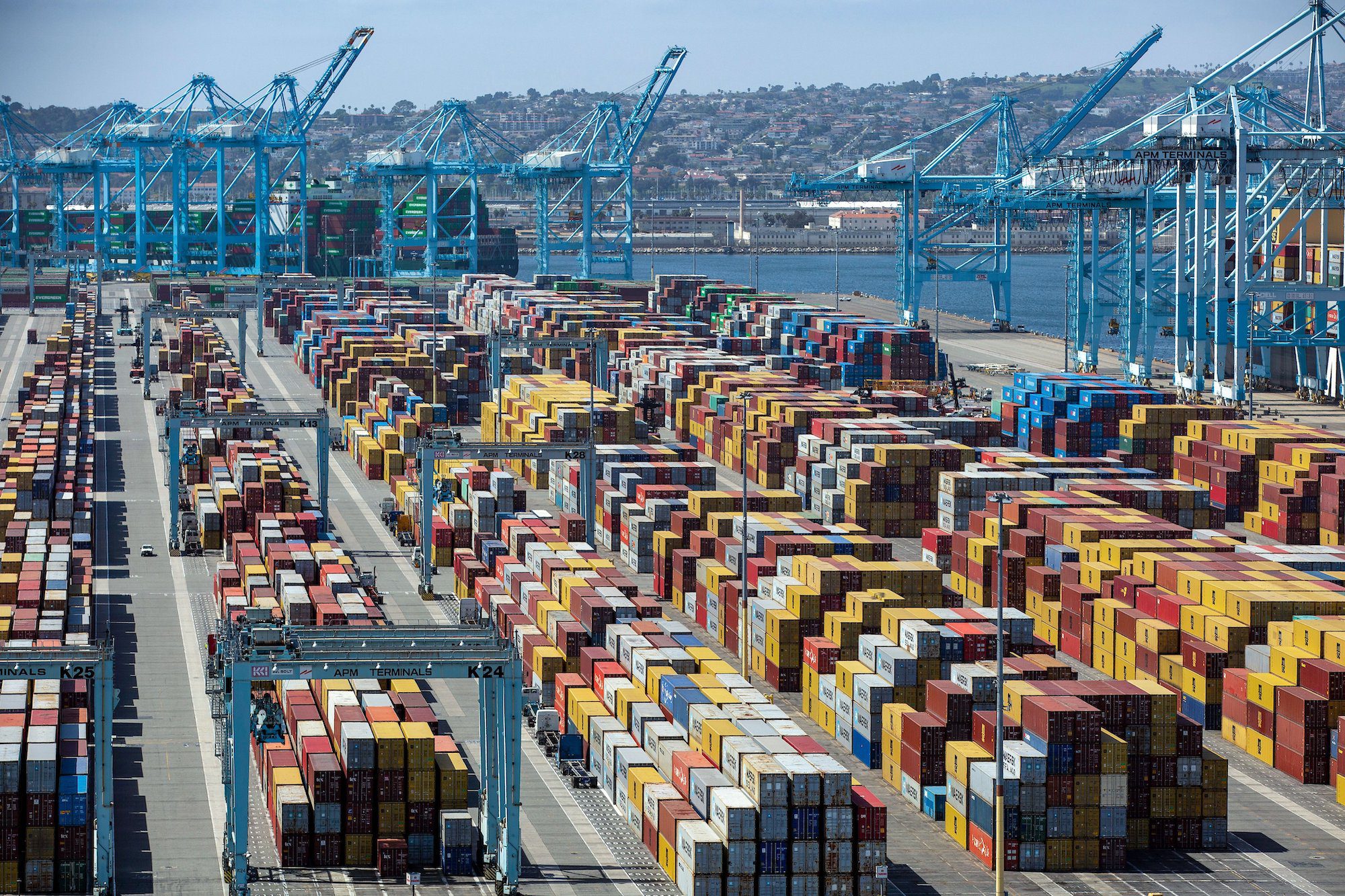The U.S. Environmental Protection Agency (EPA) on Tuesday announced the allocation of nearly $3 billion to fund 55 zero-emission projects at ports across the country.
These projects, supported by the Clean Ports Program, aim to tackle climate change, reduce air pollution, promote high-quality union jobs, and advance environmental justice in communities near port facilities.
President Biden officially announced the funding during an event at the Dundalk Marine Terminal at the Port of Baltimore in Maryland.
Funded by the Inflation Reduction Act, the program will support a range of initiatives, from purchasing zero-emission cargo handling equipment to implementing comprehensive air quality and climate planning strategies. This effort is expected to cut over 3 million metric tons of carbon emissions — equivalent to the energy use of nearly 400,000 homes — while reducing harmful pollutants that affect air quality in port communities.
Let’s examine some of the key projects selected for funding:
Key Projects at U.S. Ports
Port Authority of New York and New Jersey (PANYNJ): Awarded $344 million, this project will implement a zero-emissions program across the NY-NJ port region, deploying electric cargo handling equipment, drayage trucks, and shore power infrastructure to reduce the number of diesel-powered vehicles. PANYNJ will also provide training for workers to operate and maintain the new technology while launching the Green Drayage Accelerator (GDA) program to incentivize sustainable trucking practices.
Detroit/Wayne County Port Authority: Selected to receive $21.9 million, this project will transition the Port of Detroit to a zero-emission future by integrating battery-electric cargo equipment, vessels, and solar arrays. The project includes the removal of outdated diesel equipment to improve air quality and the creation of a community engagement and workforce development guidebook.
Georgia Ports Authority (GPA): With an anticipated $48.7 million, GPA will enhance the Port of Savannah and the Port of Brunswick with shore power systems, allowing vessels to plug into grid power rather than relying on diesel engines. This project also includes electric terminal tractor installations and workforce training focused on zero-emission technologies and infrastructure.
Philadelphia Regional Port Authority (PhilaPort): Receiving $77.6 million, PhilaPort’s project will deploy zero-emission cargo handling equipment and retire portions of its diesel fleet. The initiative also involves workforce development and community engagement programs, aligning with PhilaPort’s goal to operate more sustainably.
Port of Oakland: Secured $322 million to deploy electric and hydrogen-powered cargo handling equipment, drayage trucks, and a battery storage system. The Port of Oakland’s project aims to expand community access to high-quality jobs and reduce the local carbon footprint through a comprehensive workforce training program.
Maryland Port Administration (MPA): Selected for over $145 million to purchase zero-emission equipment and facilitate port transition, plus a $2 million planning grant for future emissions reductions. This investment will support over 2,000 jobs, including 350+ in manufacturing, while benefiting the local economy and improving air quality.
Planning Projects
Port of Houston Authority: Awarded nearly $3 million for the PORT SHIFT initiative, which includes a greenhouse gas emissions inventory, infrastructure cost assessments, and community engagement efforts. The initiative aims to establish zero-emissions technology and resiliency planning within Houston’s port operations.
Puerto Rico Ports Authority: Granted $1.8 million, this project will develop emissions reduction strategies, assess infrastructure vulnerabilities, and create a resiliency plan to protect against climate-related hazards like hurricanes.
Northwest Seaport Alliance (NWSA): Receiving $3 million, NWSA will conduct a feasibility study and emissions inventory for transitioning the Port of Tacoma to zero-emission operations, focusing on community engagement and resilience planning.
Ports of Indiana: A $500,000 grant will fund emission-reduction studies at Jeffersonville and Mount Vernon ports on the Ohio River. The project includes developing emission inventories, analyzing reduction strategies, and planning future decarbonization efforts at both locations.
Broad Impact
Beyond reducing emissions, the Clean Ports Program is aligned with the administration’s Justice40 Initiative, which aims to direct 40% of the benefits of federal investments to disadvantaged communities.
Selected applicants will now work with the EPA to finalize their project plans, with awards expected to be distributed in early 2025.
Editorial Standards · Corrections · About gCaptain

 Join The Club
Join The Club











